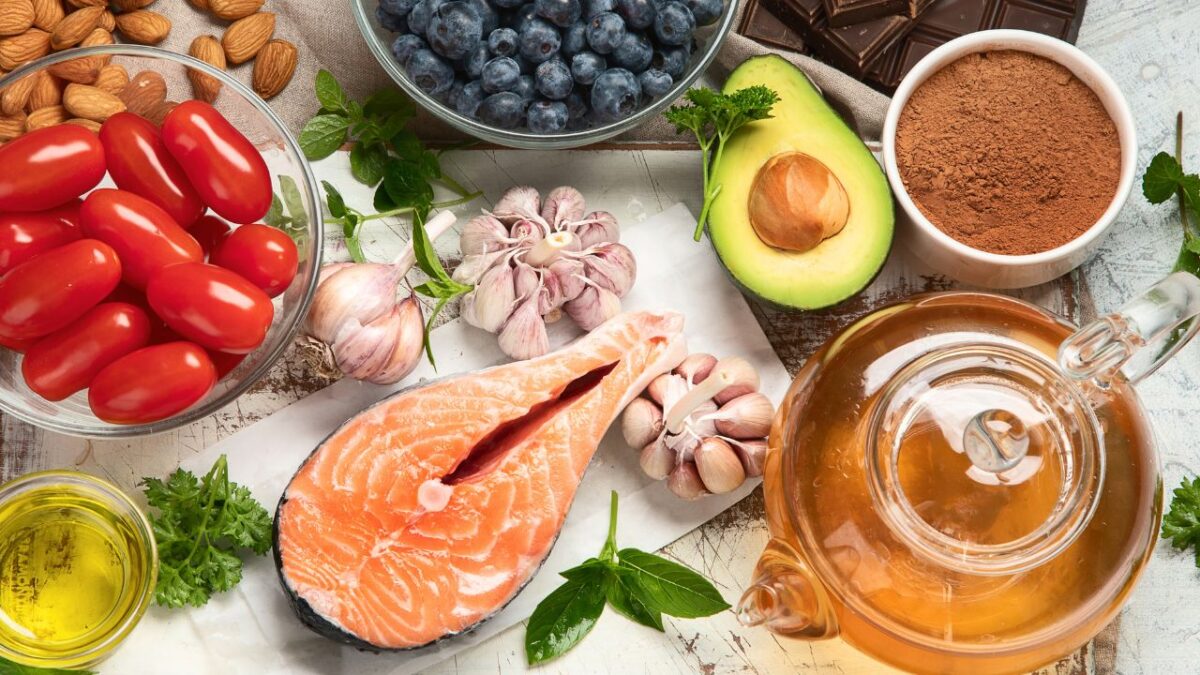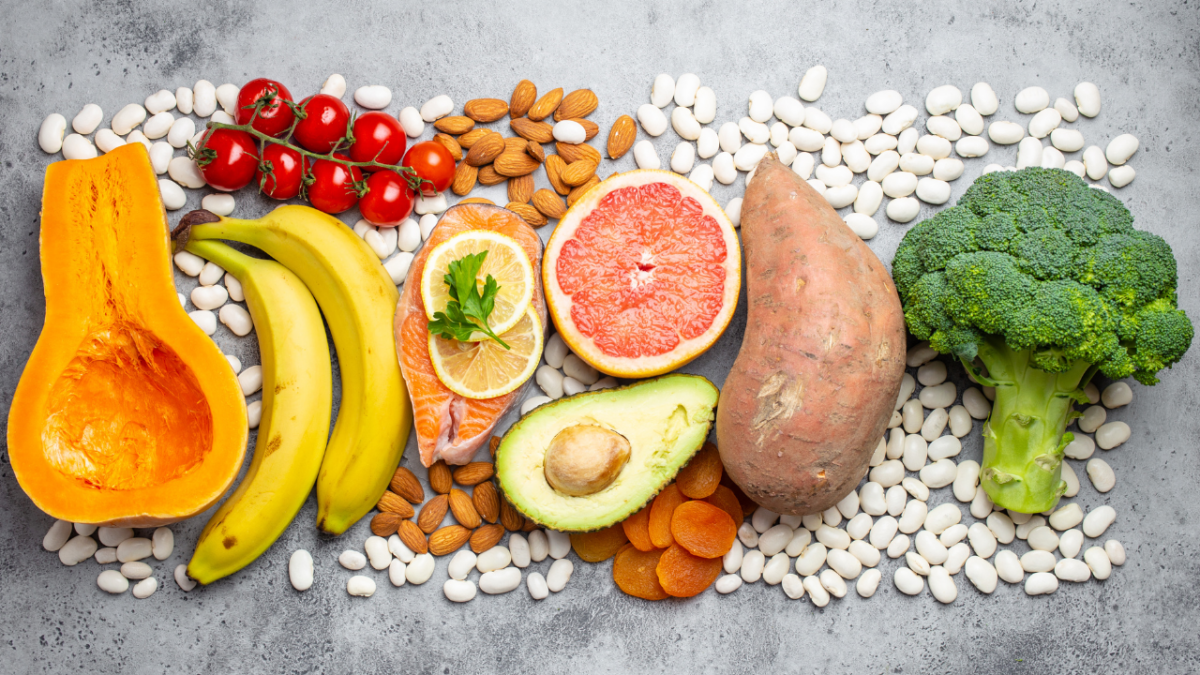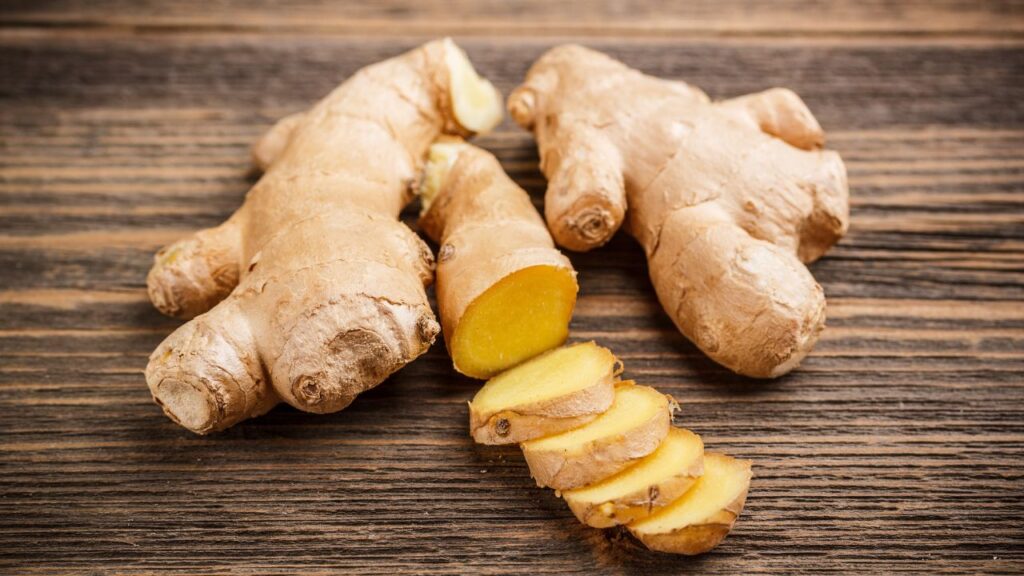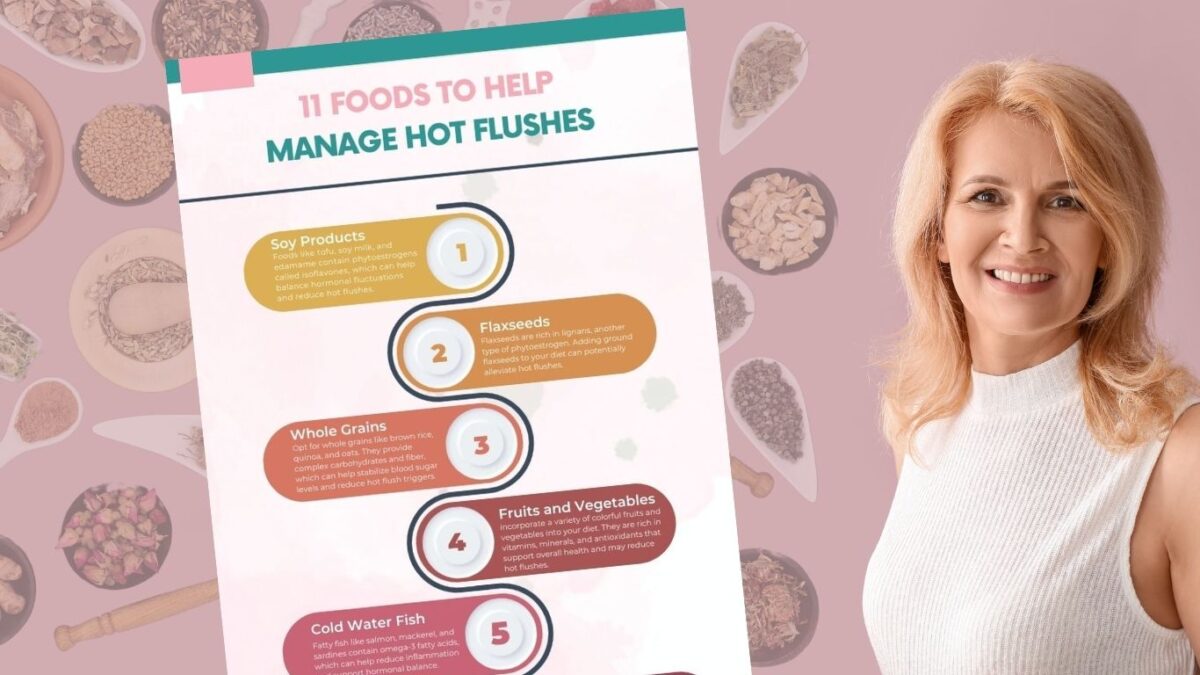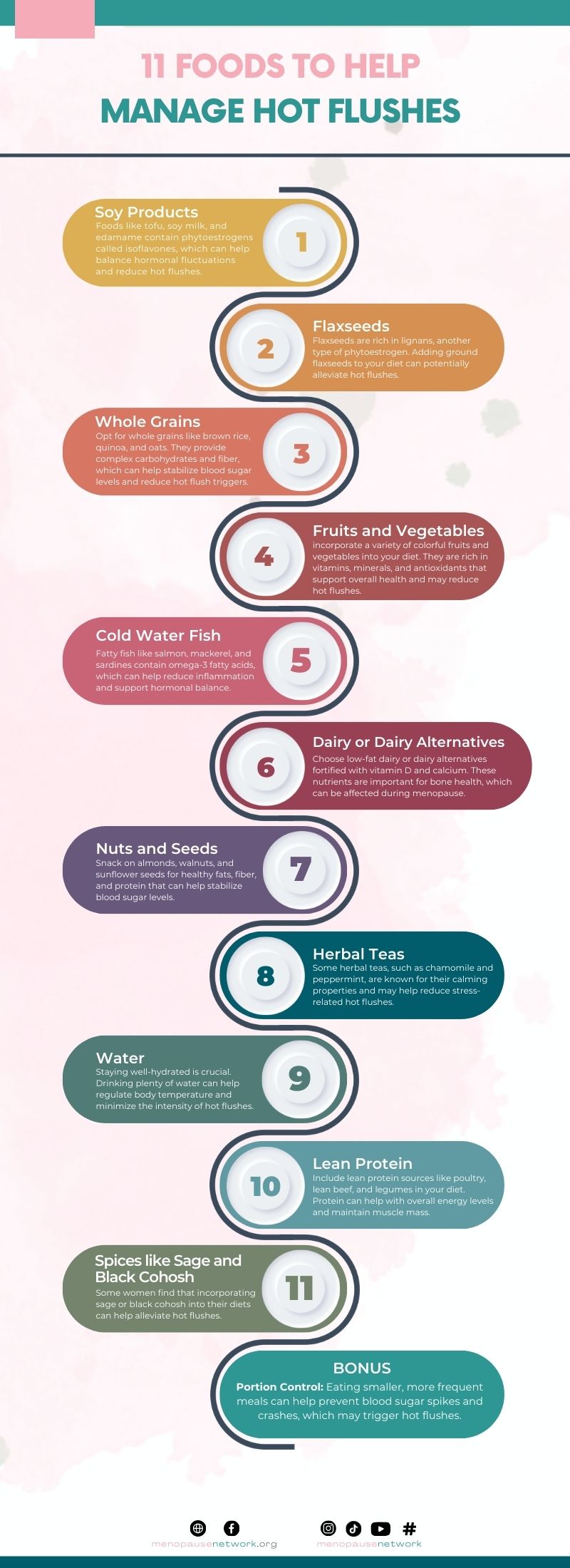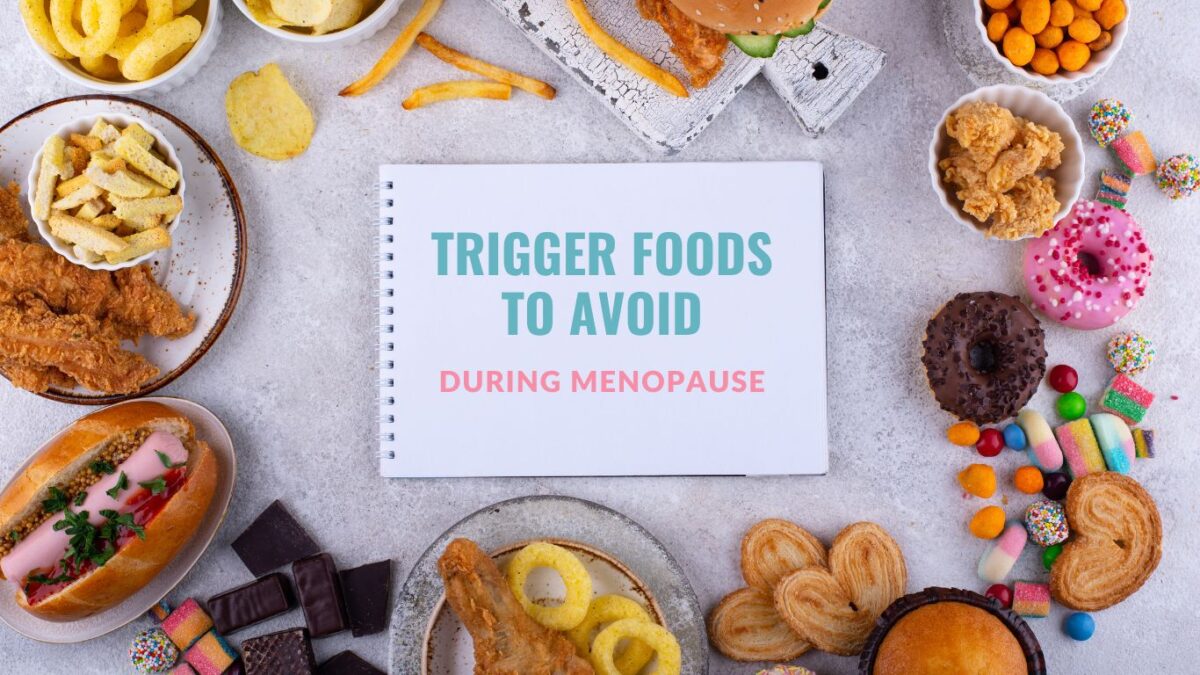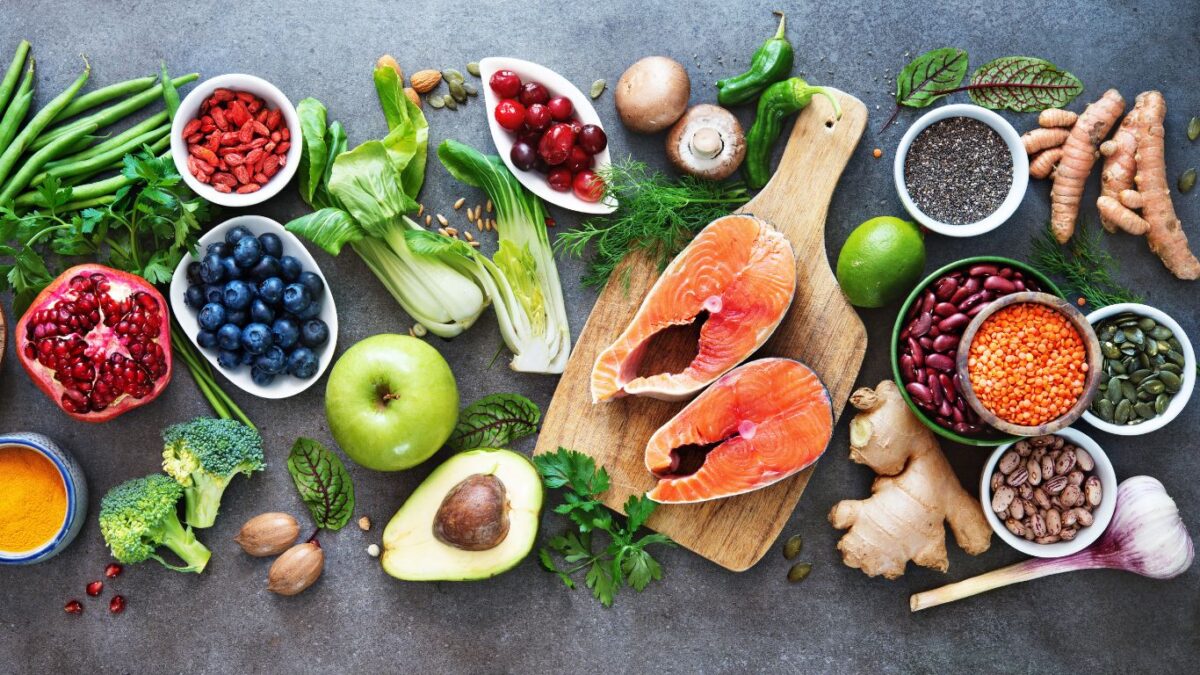Anti-Inflammatory Foods: A Natural Solution for Menopause
Before exploring the benefits of anti-inflammatory foods, it’s crucial to understand the role of inflammation in menopause. Inflammation is a natural response of the body’s immune system to protect against injuries and infections. However, chronic inflammation can lead to various health issues, including exacerbating menopausal symptoms.
Hot Flashes and Inflammatory Responses
Hot flashes, one of the most common symptoms of menopause, have been linked to inflammatory processes. Studies suggest that an inflammatory state in the body can trigger or worsen these uncomfortable episodes. By managing inflammation through diet, women can potentially reduce the frequency and severity of hot flashes.
Joint Pain and Stiffness
Many women report an increase in joint pain and stiffness during menopause. This discomfort is often associated with inflammatory responses in the body. Consuming anti-inflammatory foods can help alleviate these symptoms, improving mobility and overall quality of life.
Anti-Inflammatory Foods and Their Benefits
Incorporating anti-inflammatory foods into the diet is a proactive way to counteract the inflammation associated with menopause. These foods not only help reduce inflammation but also provide essential nutrients that support overall health.
Fatty Fish: Omega-3 Powerhouses
Fatty fish such as salmon, mackerel, and sardines are rich in omega-3 fatty acids, which are renowned for their anti-inflammatory properties. Omega-3s help reduce the production of inflammatory markers, such as cytokines and eicosanoids, which can exacerbate menopausal symptoms.
Whole Grains: Fiber-Filled Choices
Whole grains like oats, quinoa, and brown rice are high in fiber, which has been shown to reduce levels of C-reactive protein, an indicator of inflammation in the body. Additionally, these grains provide a steady supply of energy, helping to manage weight, which can often fluctuate during menopause.
Leafy Greens: Nutrient-Dense and Protective
Leafy greens such as spinach, kale, and Swiss chard are loaded with vitamins and minerals that play a role in reducing inflammation. These vegetables are high in vitamin K, which is essential for bone health, a major concern for women undergoing menopause.
Enhancing Menopausal Health Through Diet
Diet plays a crucial role in managing menopause symptoms. By focusing on anti-inflammatory foods, women can not only alleviate specific symptoms but also enhance their overall health.
Diet plan rich in anti-inflammatory foods
Creating a diet plan rich in anti-inflammatory foods can be very beneficial for overall health, as these foods help reduce inflammation in the body, which is linked to a number of chronic diseases. Here’s a simple weekly meal plan that includes a variety of anti-inflammatory foods:
Day 1:
Breakfast: Turmeric Oatmeal with chopped nuts and berries
Lunch: Grilled salmon salad with mixed greens, avocado, and walnuts, dressed with olive oil and lemon
Dinner: Stir-fried chicken and vegetables (broccoli, bell peppers, carrots) with ginger and garlic
Snacks: An apple; a handful of almonds
Day 2:
Breakfast: Smoothie with spinach, pineapple, banana, and flaxseeds
Lunch: Quinoa and black bean stuffed peppers
Dinner: Baked cod with a side of sweet potatoes and Brussels sprouts
Snacks: Orange slices; carrot sticks with hummus
Day 3:
Breakfast: Chia pudding with coconut milk and fresh mango
Lunch: Turkey and avocado wrap with whole grain tortilla
Dinner: Lentil soup with kale and spices (cumin, coriander)
Snacks: Greek yogurt with honey; a handful of pumpkin seeds
Day 4:
Breakfast: Whole grain toast with almond butter and sliced bananas
Lunch: Spinach and feta stuffed chicken breast, side of roasted beets
Dinner: Zucchini noodles with shrimp and a tomato basil sauce
Snacks: Berries; a few slices of cucumber
Day 5:
Breakfast: Egg muffins with spinach and mushrooms
Lunch: Salad with mixed greens, grilled chicken, almonds, and blueberries
Dinner: Beef stir-fry with broccoli and bell peppers
Snacks: An orange; kale chips
Day 6:
Breakfast: Pumpkin pancakes topped with walnuts and a small drizzle of maple syrup
Lunch: Baked trout with a side of asparagus and quinoa
Dinner: Vegetable curry with brown rice
Snacks: Apple slices with peanut butter; a handful of sunflower seeds
Day 7:
Breakfast: Greek yogurt parfait with granola and mixed berries
Lunch: Roast chicken breast with a side of roasted carrots and fennel
Dinner: Vegetable chili
Snacks: A banana; a handful of cashews
This diet plan focuses on incorporating foods like berries, nuts, whole grains, fatty fish, and green leafy vegetables, which are known for their anti-inflammatory properties. Remember to drink plenty of water throughout the day and consider adding green tea as a healthy, antioxidant-rich beverage choice.
Nutritional Strategies for Menopause
A balanced diet rich in anti-inflammatory foods can help stabilize hormones and reduce the physical discomfort associated with menopause. Incorporating a variety of fruits, vegetables, whole grains, and lean proteins ensures that the body receives a comprehensive array of nutrients.
Lifestyle and Dietary Synergy
Combining a healthy diet with other lifestyle changes such as regular exercise, adequate sleep, and stress management can significantly improve the menopausal experience. These elements work together to reduce overall inflammation and enhance well-being.
FAQs
How can anti-inflammatory foods reduce hot flashes?
By reducing the body’s inflammatory response, these foods may decrease the severity and frequency of hot flashes, providing relief during menopause.
What are some simple ways to incorporate anti-inflammatory foods into a menopausal diet?
Including fatty fish in meals a couple of times a week, opting for whole grains instead of refined ones, and increasing the intake of leafy greens and other vegetables can effectively increase anti-inflammatory nutrients in your diet.
Can anti-inflammatory foods help with menopausal weight gain?
Yes, by improving metabolism and reducing inflammation, these foods can help manage weight during menopause. A diet high in fiber and omega-3 fatty acids can also promote a feeling of fullness and reduce overall calorie intake.
Are there any anti-inflammatory spices that can help with menopause symptoms?
Turmeric and ginger are two spices known for their anti-inflammatory properties. Incorporating these into your diet can help reduce inflammation and alleviate menopausal discomfort.
Takeaway
Adopting a diet rich in anti-inflammatory foods can significantly benefit women undergoing menopause. Not only does it help in reducing the discomfort caused by inflammatory symptoms, but it also supports overall health and well-being. By making mindful dietary choices, women can ease the transition through menopause and enhance their quality of life.
Here’s a link to a full list of Anti-Inflammatory Foods

